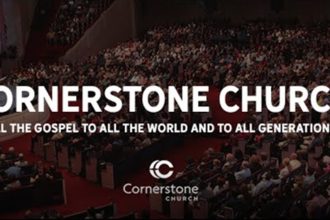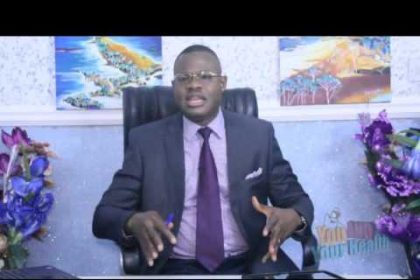
The recent Newsweek article titled “Evangelical Leaders Call Out Danger as ‘Prophets’ Tie God to Donald Trump” raises a crucial debate within the Christian community about the role of the church in politics.
The argument centers around whether church leaders should endorse political candidates and the perceived dangers of intertwining faith with specific political figures.
While caution is warranted, the Bible provides a compelling case for the involvement of churches in politics, especially when it comes to prophetic guidance and leadership in line with God’s will.
The biblical mandate for political involvement
The Bible is replete with examples of God’s people being called to influence nations and governments. One of the most striking examples is found in the book of Daniel.
Daniel, a prophet, served in the courts of Babylonian and Persian kings, providing wisdom and guidance that shaped the course of entire empires (Daniel 2:48). His role was not just spiritual but also political, showing that God can use His people to influence leadership at the highest levels.
Similarly, Joseph’s rise to power in Egypt under Pharaoh (Genesis 41) demonstrates how God can elevate His chosen individuals to positions of political authority to fulfill His divine purposes. These biblical stories underscore that involvement in politics is not inherently dangerous but can be a means through which God’s will is enacted on earth.
Prophecy and political leadership
Prophecy has always played a pivotal role in guiding God’s people, especially in times of crisis or transition. The Old Testament prophets were often called to speak truth to power, offering divine insight into the direction of nations. Amos 3:7 states, “Surely the Sovereign Lord does nothing without revealing his plan to his servants the prophets.” This suggests that God uses prophecy as a tool to guide leaders and nations.
In the New Testament, the role of prophecy continues, with the Apostle Paul urging believers not to “treat prophecies with contempt” (1 Thessalonians 5:20).
Prophecy serves as a way for God to communicate His will, including matters of leadership and governance. Therefore, dismissing modern-day prophecies related to political figures like former President Donald Trump could mean overlooking a vital aspect of God’s communication with His people.
The danger of political neutrality
The Newsweek article highlights concerns that endorsing political candidates from the pulpit could harm the church’s witness. However, political neutrality is not always the safer path. In fact, remaining silent on political issues can be just as dangerous, as it may allow unrighteousness to go unchecked. Proverbs 29:2 reminds us, “When the righteous are in authority, the people rejoice: but when the wicked beareth rule, the people mourn.”
The Bible calls the Church to be the “salt of the earth” and the “light of the world” (Matthew 5:13-16). This mandate extends beyond personal morality and into the realm of social and political influence. If the Church fails to engage in politics, it risks allowing ungodly leaders and policies to prevail, leading to the moral and spiritual decline of the nation.
Prophecy and the modern church
The rise of prophetic voices in support of former President Donald Trump has sparked controversy, with some Evangelical leaders warning against equating God’s will with that of a political party.
Yet, history shows that God has often raised up leaders who are imperfect but chosen to fulfill His purposes. King David, for instance, was far from perfect, yet he was “a man after God’s own heart” (1 Samuel 13:14).
The key is discernment — churches must prayerfully consider whether a leader aligns with biblical principles and values. Rejecting prophecy outright because it does not fit our preconceived notions of what a leader should be could mean missing out on God’s chosen vessel for a particular time and purpose.
Why churches must engage in politics
The Church has a responsibility to engage in politics, not for the sake of power but to ensure that God’s principles and justice prevail in the land. Prophecy is one of the ways God communicates His will for nations, and the Church must not ignore this vital aspect of divine guidance.
By carefully discerning the role of prophecy in political leadership, the church can fulfill its biblical mandate to be a guiding light in times of moral and spiritual darkness.
Rather than retreating from political involvement, the church should embrace its role as a prophetic voice, calling leaders to righteousness and ensuring that God’s will is done on earth as it is in heaven.
My upcoming book, The Trump Code (Charisma House/FrontLine, September 17, 2024), delves into various prophecies and their potential connections to contemporary political events, providing a fascinating perspective on the 2024 Presidential Election.
Troy Anderson is a Pulitzer Prize-nominated investigative journalist, bestselling author of The Babylon Code, Trumpocalypse, The Military Guide to Armageddon and Revelation 911, former executive editor of Charisma magazine and Charisma Media, and reporter at the Los Angeles Daily News and other newspapers. He’s the founder and president of the Inspire Literary Group and writes for Newsmax, Charisma, Townhall and other media outlets. His latest book is The Trump Code (Charisma House/FrontLine, September 17, 2024). Find out more at www.troyanderson.us and www.inspireliterary.com.







